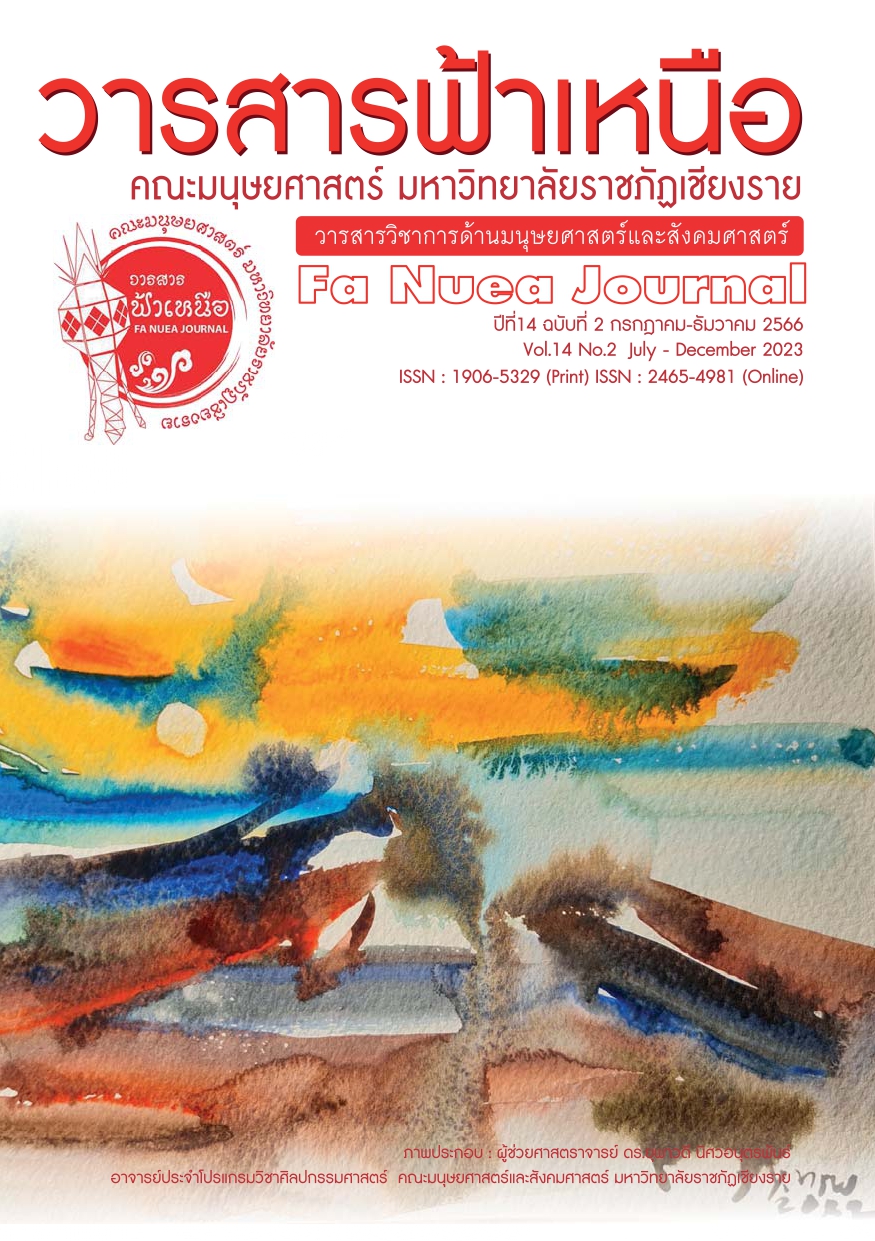Expectations and Political Ideologies in National Children’s Day Mottoes
Main Article Content
Abstract
This thesis aims to study discourses on expectations and political ideologies in 58 National Children’s Day Mottoes conferred from BE.2499 (AD. 1956) – BE.2565 (AD. 2022). The researcher applied the concept of critical analytical discourse of Norman Fairclough. The analysis results find eight expectations in relation to Thai youth’s characteristics presented in the mottoes from most to least: seeking knowledge, being well disciplined, being virtuous, being patriotic, having a sense of unity, having love for Thainess, having public consciousness and having gratitude, respectively. As for political ideologies, there are six of them: ideologies of development, stability creation, nation restoration, maintaining order, patriotism and unity. For Children’s Day motto establishment, every Thai government leader set it in relation to the national administration policy, concept as well as social situation of each period. Using a motto is a channel to communicate desirable characteristics which youth can hold on to as well as create in them a necessity of being parts of national development.
Article Details

This work is licensed under a Creative Commons Attribution-NonCommercial-NoDerivatives 4.0 International License.
Articles, information, content, pictures, etc. which have been published in Fa Nuea Journal, are copyright of Fa Nuea Journal. If any person or party wishes to disseminate all or part of it or take any action must be referenced. Do not use for commercial purposes and do not modify (CC-BY-NC-ND). For further details, please access at Attribution-NonCommercial-NoDerivatives 4.0 International (CC BY-NC-ND 4.0)
References
กิ่งดาว จองปุ๊ก. (2560). การวิเคราะห์คุณลักษณะอันพึงประสงค์ของตัวละครเอกในนวนิยายไทย [วิทยานิพนธ์ปริญญามหาบัณฑิต ไม่ได้ตีพิมพ์]. มหาวิทยาลัยราชภัฏเชียงใหม่.
ไชยรัตน์ เจริญสินโอฬาร. (2545). สัญวิทยา, โครงสร้างนิยม, หลังโครงสร้างนิยมกับการศึกษารัฐศาสตร์. วิภาษา.
ไทยรัฐออนไลน์. (2565, 5 มกราคม). วัฒนธรรม: ประวัติวันเด็กแห่งชาติ รวมคำขวัญวันเด็กตั้งแต่อดีตถึงปัจจุบัน 2565. ไทยรัฐ.https://www.thairath.co.th/lifestyle/culture/2006827
ธเนศ วงศ์ยานนาวา. (2529). มิเชล ฟูโกต์: ปัญญาชน ความจริง และอำนาจ.เศรษฐศาสตร์การเมือง, 5(1-2), 142-154.
นรนิติ เศรษฐบุตร. (2554). เกิดมาเป็นนายก. มหาวิทยาลัยธรรมศาสตร์.
บัณฑิต ทิพย์เดช. (2553). วาทกรรมการเมืองในงานของวรรณกรรม ของเสกสรรค์ ประเสริฐกุล [วิทยานิพนธ์ปริญญามหาบัณฑิต ไม่ได้ตีพิมพ์].มหาวิทยาลัยเชียงใหม่.
บุญญาภา อักษรกาญจน์. (2556). คำขวัญวันเด็กของนายกรัฐมนตรีไทย.[วิทยานิพนธ์ปริญญามหาบัณฑิต, มหาวิทยาลัยศิลปากร]. Silpakorn University Central Library All Rights Reserved.
http://www.sure.su.ac.th/xmlui/handle/123456789
บุณย์เสนอ ตรีวิเศษ และ สมเกียรติ รักษ์มณี. (2559). พลังภาษาสร้างอัตลักษณ์ในวาทกรรมของเสกสรรค์ ประเสริฐกุล. วารสารมนุษยศาสตร์ มหาวิทยาลัยนเรศวร, 13(2), 87-106.
พิมพ์พาภรณ์ บุญประเสริฐ. (2554). วาทกรรมชาตินิยมของรัฐบาลไทย ตั้งแต่ พ.ศ.2547 ถึง พ.ศ.2550. เรื่องเต็มการประชุมทางวิชาการของมหาวิทยาลัยเกษตรศาสตร์ ครั้งที่ 49: สาขามนุษยศาสตร์และสังคมศาสตร์ (น. 183-190). มหาวิทยาลัยเกษตรศาสตร์.
มหาวิทยาลัยสุโขทัยธรรมาธิราช สาขาวิชาศิลปศาสตร์. (2558). เอกสารการสอนชุดวิวัฒนาการการเมืองไทย หน่วยที่ 1-7 (พิมพ์ครั้งที่ 19). มหาวิทยาลัยสุโขทัยธรรมาธิราช.
อรรถสิทธิ์ พานแก้ว, ฐิติกร สังข์แก้ว, และ สราวุธ ทับทอง. (2559). จุด (ไม่) จบ : ช่วงฉากการเมืองไทย '48 '59. สถาบันพระปกเกล้า.


